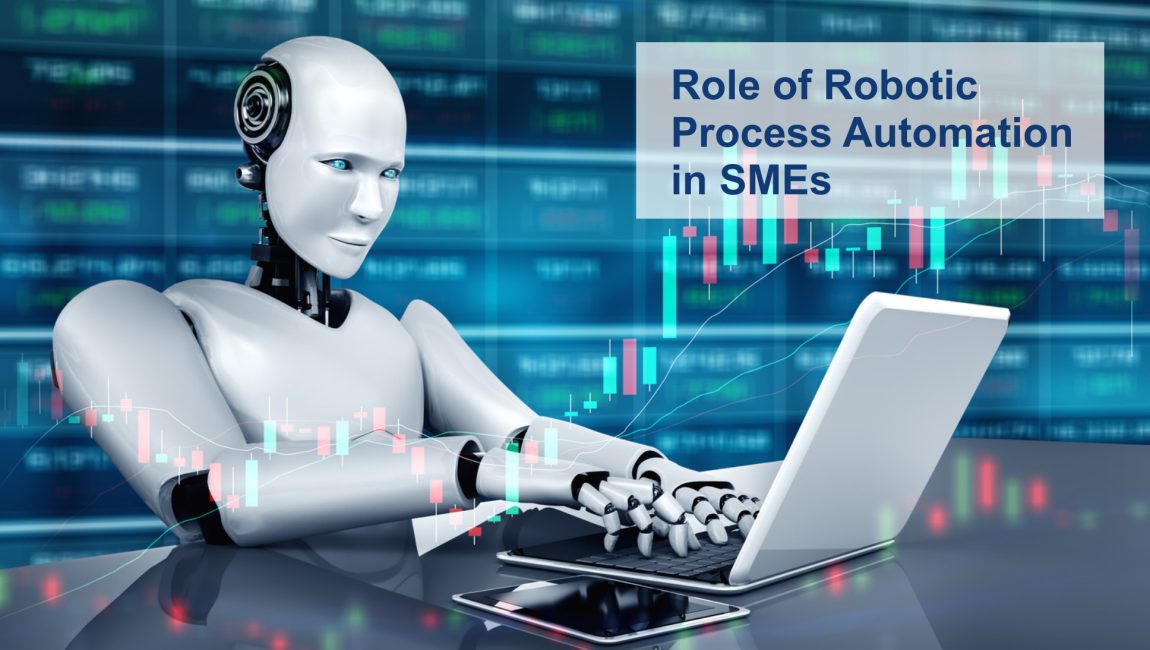Robotic Process Automation (RPA) has emerged as a transformative force in the fast-paced world of finance and accounting, where precision and efficiency are paramount. Its impact is especially pronounced for Small and Medium-sized Enterprises (SMEs), as the adoption of RPA in accounting processes can streamline operations, minimize errors and significantly enhance overall efficiency.
Understanding RPA
Robotic Process Automation involves the use of software robots or “bots” that perform rule-based repetitive tasks previously performed by humans. In the realm of accounting, these tasks may include data entry, reconciliation, invoice processing and other routine activities. RPA simulates human behaviour while working with digital systems and applications, therefore performing tasks quickly and accurately.
Implementation of RPA in Accounting
- Data input and Invoice Processing: RPA may tackle tiresome data input, especially invoicing. Bots can accurately identify invoice data, enter it into accounting systems and validate. This lowers errors and frees up human resources for key tasks.
- Reconciliation: Account reconciliation involves comparing transactions across financial documents. This procedure can be automated by having RPA evaluate data from different sources and indicate differences for human review. This makes reconciliation faster and more accurate.
RPA helps in the identification and in the correction of flaws as well as inconsistencies from large-scale datasets, thereby maintaining data integrity, improving precision upon financial reporting.
- Compliance and Reporting: RPA can automate compliance reporting to ensure adherence to legislation and standards. Bots can quickly harvest data, calculate and provide reports, lowering non-compliance and penalties.
SME Accounting: RPA Benefits
RPA minimizes human errors by automating routine and rule-based processes. Accounting correctness is essential for financial integrity and regulatory compliance.
- Time and Cost Savings: RPA speeds up manual procedures for SMEs, saving time and money. Reallocating human resources to key tasks also boosts operational efficiency.
- Scalability: Accounting tasks may expand as SMEs grow. RPA scales to manage increased workloads without increasing staff. Scalability is especially useful for dynamic businesses with fluctuating demands.
- Improved Decision-Making: RPA handles mundane activities so accountants may focus on financial analysis and strategy. Better decision-making is possible with in-depth analysis and precise data.
Challenges and Considerations
While RPA has numerous advantages, its implementation is not easy and requires a profound analysis. Security, data privacy and workforce effect must be considered. To smoothly use RPA, SMEs should invest in training and change management. Overall, Robotic Process Automation can transform accounting procedures in SMEs, where agility and efficiency are key. RPA also enhances profits and empowers accountants to strategically contribute to the company’s growth by automating mundane processes, minimizing mistakes and increasing efficiency. RPA in accounting is essential for SMEs to compete successfully as the technology becomes more sophisticated.

